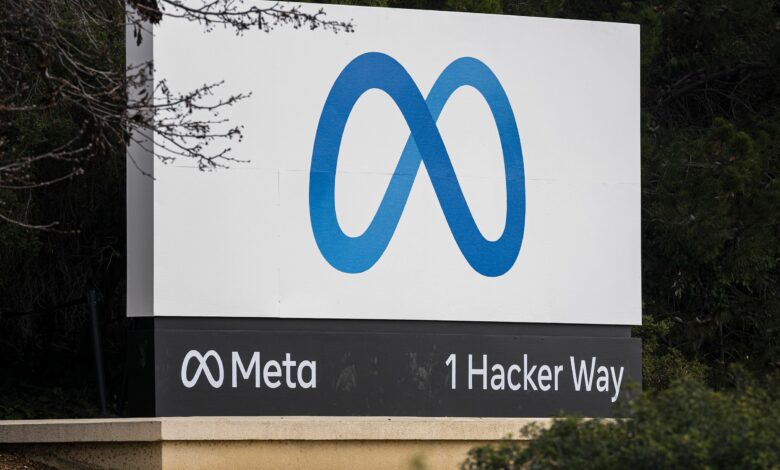
The job cuts come as Meta confronts a range of challenges to its core business and makes an uncertain and costly bet on pivoting to the metaverse. It also comes amid a spate of layoffs at other tech firms in recent months as the high-flying sector reacts to high inflation, rising interest rates and fears of a looming recession.
“Today I’m sharing some of the most difficult changes we’ve made in Meta’s history,” CEO Mark Zuckerberg wrote in a blog post to employees. “I’ve decided to reduce the size of our team by about 13% and let more than 11,000 of our talented employees go.”
The job cuts will impact many corners of the company, but Meta’s recruiting team will be hit particularly hard as “we’re planning to hire fewer people next year,” Zuckerberg said in the post. He added that a hiring freeze would be extended until the first quarter, with few exceptions.
In September, Meta had a headcount of more than 87,000, per a September SEC filing.
Meta’s core ad sales business has been hit by privacy changes implemented by Apple, advertisers tightening budgets and heightened competition from newer rivals like TikTok. Meanwhile, Meta has been spending billions to build a future version of the internet, dubbed the metaverse, that likely remains years away from widespread acceptance.
Last month, the company posted its second quarterly revenue decline and said that its profit was cut in half from the prior year. Once valued at more than $1 trillion last year, Meta’s market value has since plunged to around $250 billion.
“I want to take accountability for these decisions and for how we got here,” Zuckerberg wrote in his post Wednesday. “I know this is tough for everyone, and I’m especially sorry to those impacted.”
Meta is not alone in feeling the pain of a market downturn. The tech sector has been facing a dizzying reality check as inflation, rising interest rates and more macroeconomic headwinds have led to a stunning shift in spending for an industry that only grew more dominant as consumers shifted more of their lives online during the pandemic.
“At the start of Covid, the world rapidly moved online and the surge of e-commerce led to outsized revenue growth,” Zuckerberg wrote Wednesday. “Many people predicted this would be a permanent acceleration that would continue even after the pandemic ended. I did too, so I made the decision to significantly increase our investments. Unfortunately, this did not play out the way I expected.”
“I got this wrong, and I take responsibility for that,” he added.
Meta’s headcount in September was nearly twice the 48,268 staffers it had at the start of the pandemic in March of 2020.
A handful of tech companies have announced hiring freezes or job cuts in recent months, often after having seen rapid growth during the pandemic. Last week, rideshare company Lyft said it was axing 13% of employees, and payment-processing firm Stripe said it was cutting 14% of its staff. The same day, e-commerce giant Amazon said it was implementing a pause on corporate hiring.
Also last week, Facebook-rival Twitter announced mass layoffs impacting roles across the company as its new owner, Elon Musk, took the helm.
In addition to the layoffs, Zuckerberg said the company expects to “roll out more cost-cutting changes” in the coming months. Meta, which like other tech giants is known for its vast, perk-filled offices, is rethinking its real estate needs, he said, and “transitioning to desk sharing for people who already spend most of their time outside the office.”
“Overall,” he said, “this will add up to a meaningful cultural shift in how we operate.”




